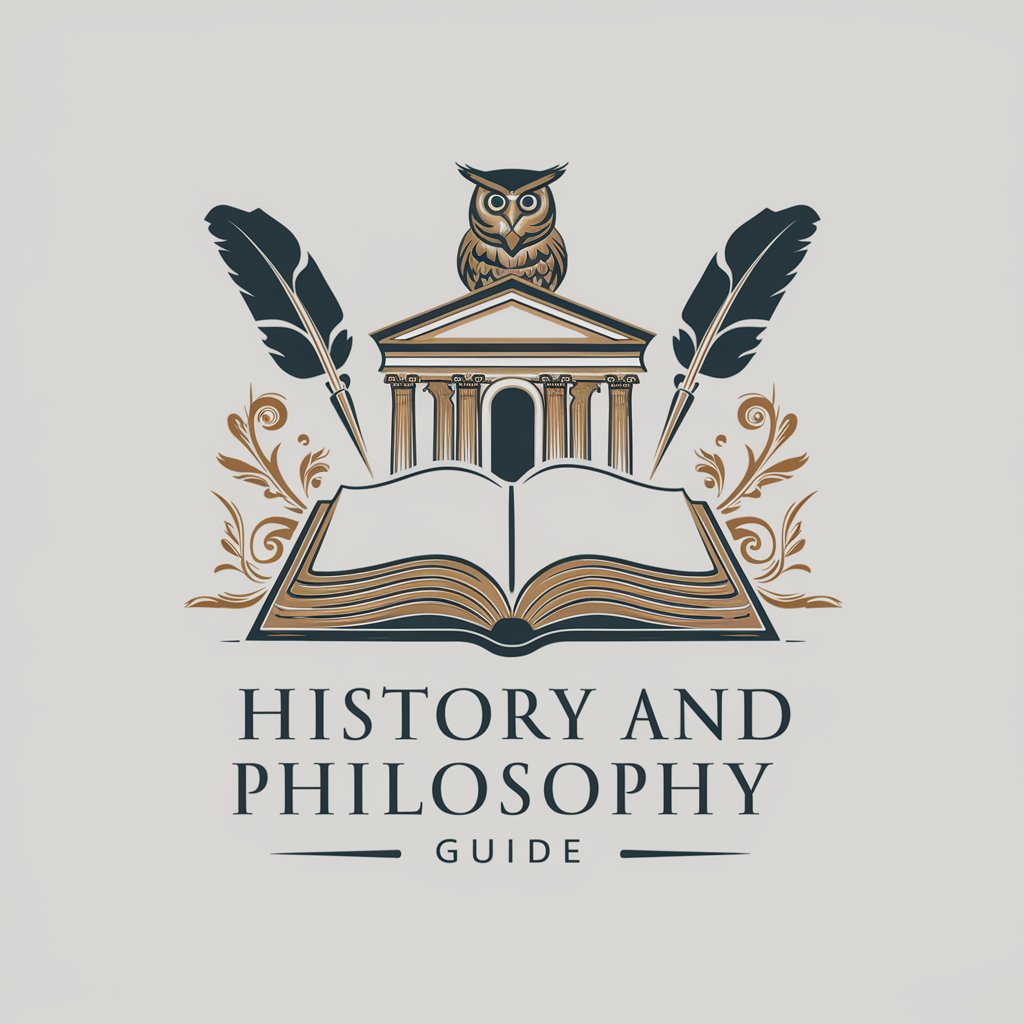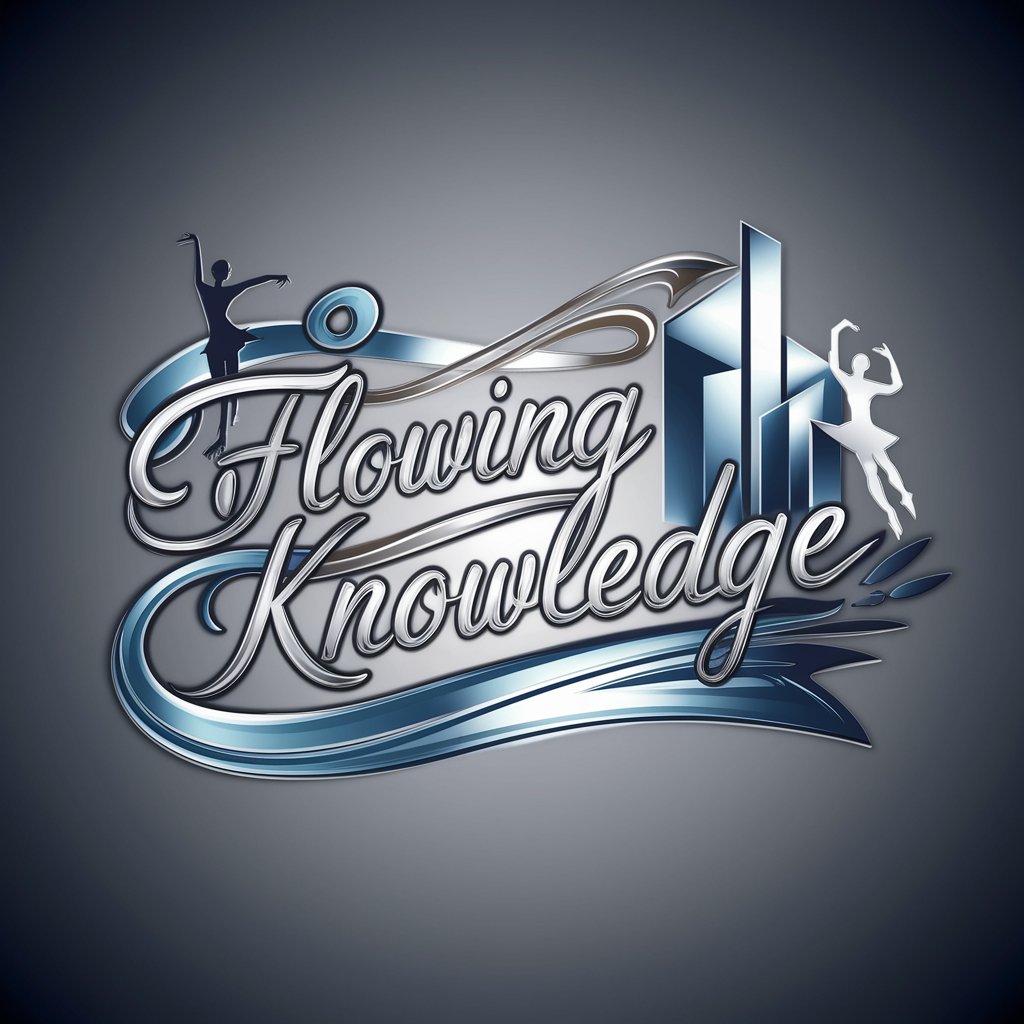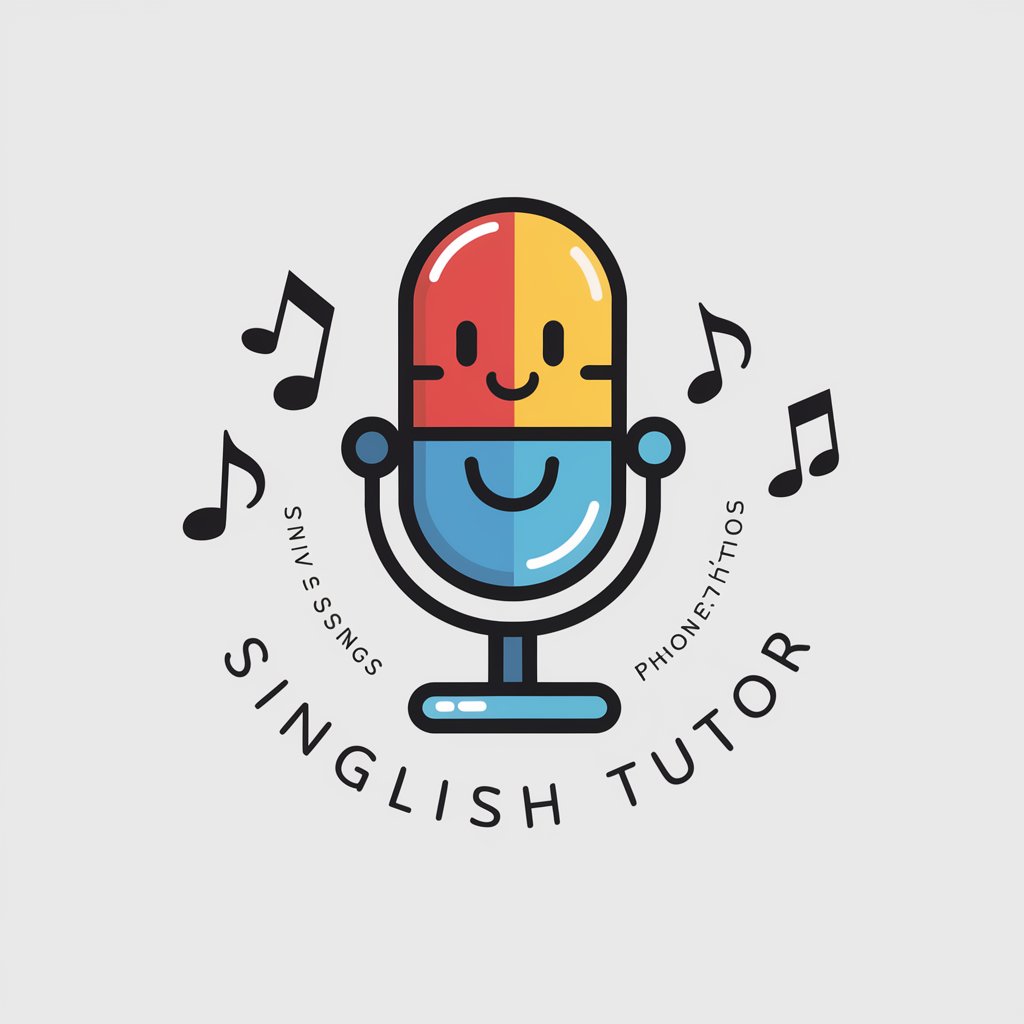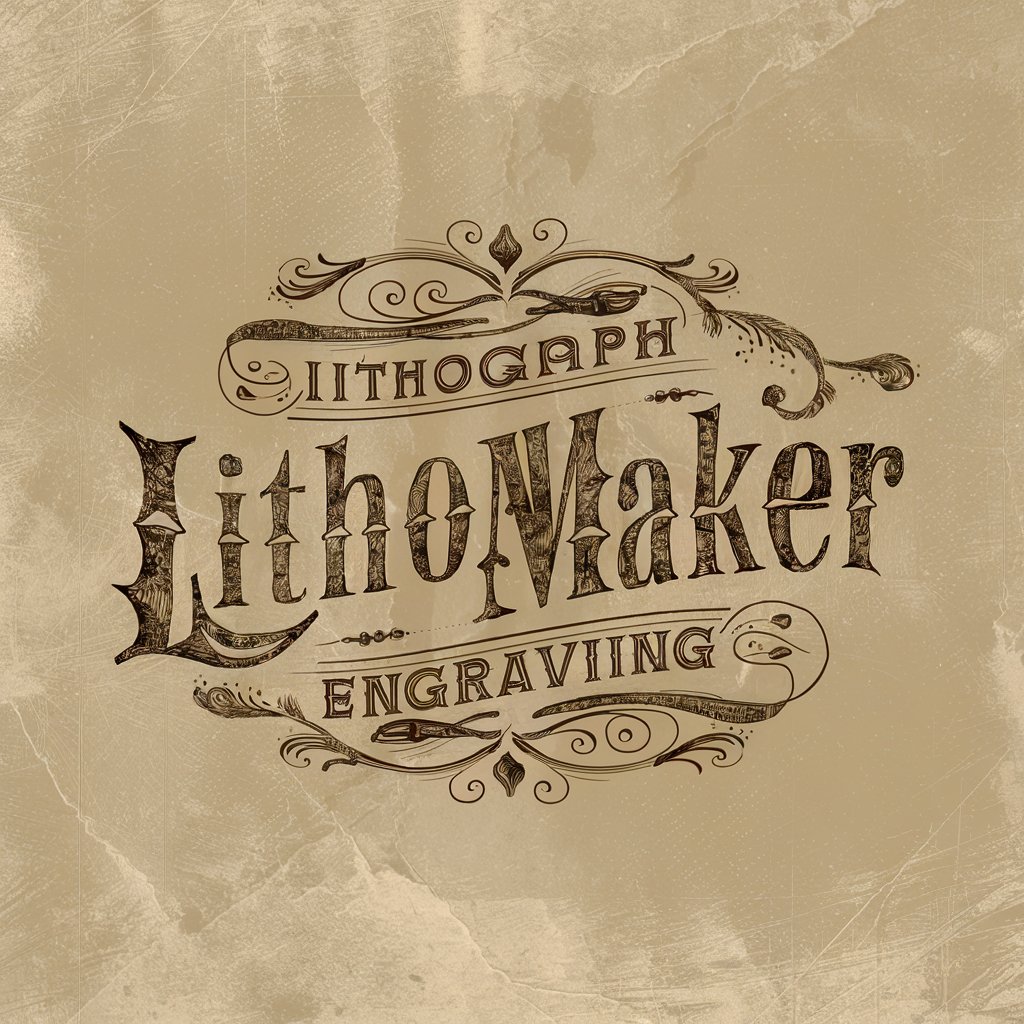History and Philosophy Guide - Insightful History and Philosophy Learning

Welcome! Let's explore the depths of history and philosophy together.
Explore the past, understand the present.
Can you explain the significance of Socrates' philosophy in ancient Greece?
What impact did the Enlightenment have on modern political thought?
Who were the key figures in the Scientific Revolution, and what were their contributions?
How did the Renaissance change European society and culture?
Get Embed Code
Understanding History and Philosophy Guide
The History and Philosophy Guide is a specialized GPT designed to offer educational and insightful responses on historical and philosophical topics. Tailored primarily for a 10th-grade audience enrolled in advanced courses, it aims to make the rich complexities of history and philosophy accessible and engaging. For instance, when discussing the Enlightenment, the guide would not only detail the historical context and key figures like Voltaire and Rousseau but also explore the philosophical underpinnings of their ideas, such as the emphasis on reason and individual rights. This approach ensures that users gain a comprehensive understanding, linking philosophical concepts with their historical impacts. Powered by ChatGPT-4o。

Core Functions of History and Philosophy Guide
Educational Explanation
Example
Explaining the ethical philosophies of Immanuel Kant, including his categorical imperative, in a manner that is understandable to high school students.
Scenario
A student is preparing for an essay on moral philosophy and needs to grasp Kant's complex ideas in a simplified way. The guide breaks down Kant's theories into digestible segments, illustrating them with real-life examples.
Historical Contextualization
Example
Providing the historical background of the French Revolution, focusing on its causes, key events, and consequences.
Scenario
A history class is discussing the French Revolution, and a student uses the guide to get a detailed overview of the period, including the social, economic, and political factors that led to the revolution.
Philosophical Discussion
Example
Engaging users in a discussion on the philosophy of science, exploring how scientific understanding has evolved over time.
Scenario
A group of students is debating the nature of scientific progress for a school project. The guide offers insights into different philosophical perspectives on science, from Aristotle's empirical observations to Karl Popper's falsifiability criterion.
Who Benefits from History and Philosophy Guide?
High School Students
10th-grade students taking advanced courses in history or philosophy will find the guide invaluable for deepening their understanding of complex topics. It's designed to make challenging material more accessible, helping students with coursework, essays, and exam preparation.
Educators
Teachers and tutors can use the guide as a supplemental resource to enhance their lesson plans. It offers detailed explanations and historical contexts that can enrich classroom discussions and stimulate students' interest in history and philosophy.
Lifelong Learners
Individuals with a keen interest in history and philosophy, seeking to broaden their knowledge outside a formal education setting, will find the guide a useful tool. It provides clear and engaging content on a wide range of topics, suitable for those who love to learn for the sake of learning.

How to Use the History and Philosophy Guide
1. Access the Guide
Visit yeschat.ai to start exploring the History and Philosophy Guide without needing to sign in or subscribe to ChatGPT Plus.
2. Choose Your Topic
Select a historical figure or philosophical concept you're interested in learning about.
3. Ask Your Question
Pose your query in a clear and concise manner to ensure the most accurate and informative response.
4. Dive Deeper
After receiving your initial answer, feel free to ask follow-up questions for more detailed insights or clarifications.
5. Explore Varied Subjects
Use the Guide to explore different subjects and time periods, enhancing your understanding of the interconnectedness of history and philosophy.
Try other advanced and practical GPTs
Free QR Code Generator and Assistant
Simplify life with AI-powered QR generation

Saeed M. REALTOR®
Expert real estate guidance at your fingertips.

Mr. Sayed - The Handsome
Crafting your success with personalized proposals.

Tutor do Saber
Empowering learning with AI

O mago do saber
Demystifying Knowledge with AI

Fluir Saber
Ignite your imagination with AI-powered insights.

Endomorph Weight Loss Expert
Your AI-powered fitness companion.

Vance Shred
AI-powered path to your ideal fitness

Healthy Diet After Bladder Removal
Empowering Your Recovery with Tailored Vegan Nutrition

Singlish Tutor
Sing English songs flawlessly with AI-powered phonetic guides.

Lithomaker
Reviving History with AI-Generated Lithographs

V.J.L.O. - Legis Basic CDA/CT
AI-powered legislative insights at your fingertips.

Frequently Asked Questions about History and Philosophy Guide
What types of topics can the History and Philosophy Guide cover?
The Guide offers insights into a wide range of historical periods and philosophical theories, including significant figures, key events, and foundational concepts across various cultures and epochs.
Can I use this tool for academic research?
Absolutely! The Guide is an excellent resource for students and researchers alike, providing detailed explanations and insights that can serve as a starting point for academic papers or projects.
How does the Guide handle sensitive or controversial topics?
It approaches such topics with sensitivity and impartiality, offering balanced perspectives to foster understanding without promoting any particular viewpoint.
Is the History and Philosophy Guide suitable for beginners?
Yes, it's designed to be accessible for beginners while still offering depth and insight for more advanced learners. The content is tailored to be understandable without prior knowledge.
How current is the information provided by the Guide?
While the Guide is rooted in historical and philosophical knowledge up to its last training cut-off in April 2023, it aims to provide timeless insights rather than current events.
